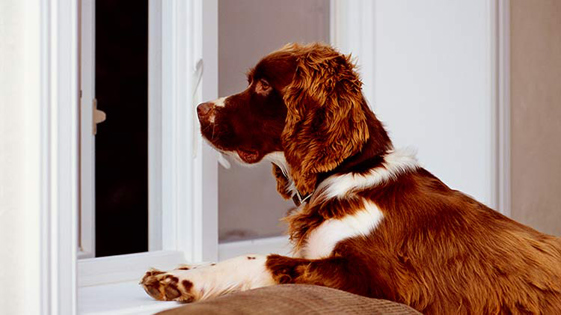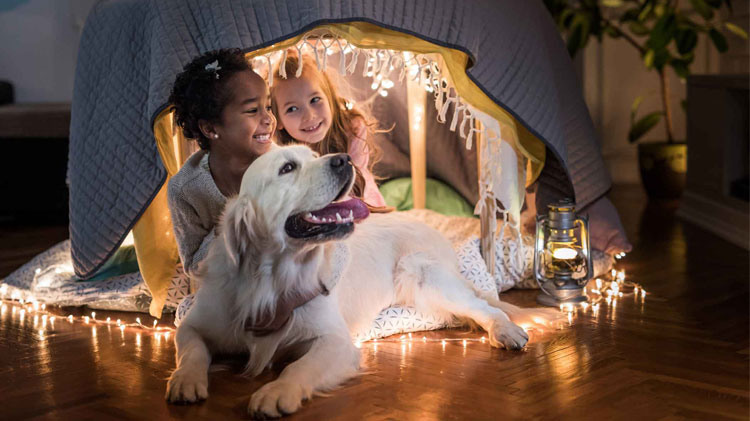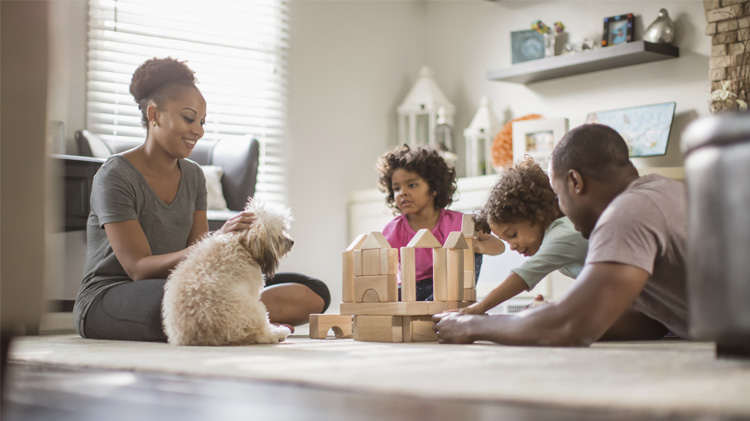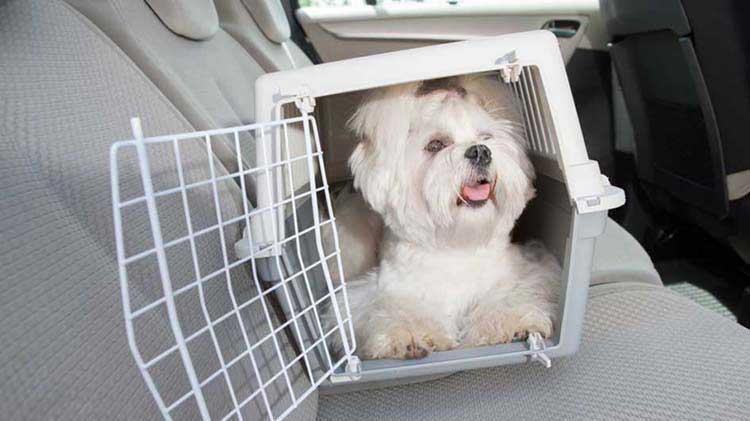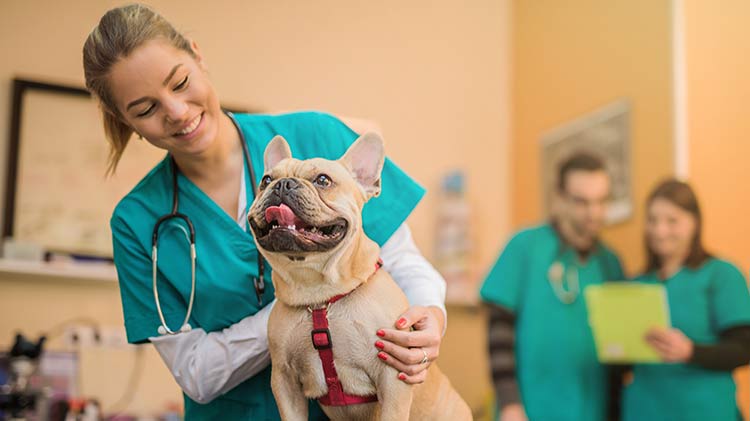Survival tips for all dog parents
The Coronavirus pandemic has changed our lives in so many ways. It has put limits on everything we do, especially our ability to socially interact with family, friends and work colleagues. Our pets, for the most part, are welcoming the fact that we are spending more time at home, but quarantine also comes with certain challenges. Dogs that like space and quiet during the day when kids are at school and adults are at work, are now finding themselves surrounded by their families 24/7 and while most welcome the company, some dogs are having a hard time adjusting to the constant noise, attention and lack of space.
So how can we make it easier for our dogs to cope during this time and for families to be safe around them, especially families that have small children? Here are a few tips to help you and your pets cope and be safe during this time of social distancing and stay-at-home orders.
- Create a den like space or ‘safe zone' in your home that is a ‘dog only' zone. This can be a dog crate where the door always remains open or a quiet location that your dog can take himself off to when he needs some space. The safe zone should be a ‘no go' area for all young children.
- If your dog finds herself in a situation she doesn't want to be in and tries to practice avoidance, allow her to leave. If she chooses to go to her dog bed/safe zone, give her the space to settle quietly and allow her some alone time. Tell any small children not to touch your dog while she is sleeping.
- If you have a multi-dog household, make sure that all dogs have their own safe zones to go to for peace and quiet.
- Small children should be actively supervised around any dog. You can use baby gates to keep dogs and kids separated if you can't actively supervise them. This can help keep them safe and avoid bites.
- This is the time to teach your dog some new skills. Challenge your dog to learn new cues and, if you need the help of a trainer, many now offer virtual consultations. You can find a trainer at positively.com/trainers.
- Be consistent! It can be confusing and frustrating for your dog if one member of the family allows him to get on the sofa but another punishes him when he does. Consistency makes learning easier and will give your dog the confidence he needs to be successful within his environment.
- Exercise and food-puzzle games provide physical and mental stimulation for dogs of all ages and is especially beneficial for dogs that are nervous or anxious. Solving puzzles can be intrinsically rewarding. Dogs that voluntarily work on puzzle toys or other enriching activities are more fulfilled because seeking something is highly rewarding.
- Give your dog a treasure hunt! This exercise allows your dog to use her bionic nose. You can use bits of kibble or your dog's favorite treats/toys for this game. Ask your dog to stay while you hide treats around the home. If your dog hasn't played this game before, start out simply by placing them in plain sight to get her used to the idea. It can take a while for some dogs to hone in on their excellent sniffing abilities. Once your dog has been successful at the game, you can make it more challenging by hiding treats/toys in some tougher spots.
- If you can take your dog out for a walk make sure you keep him on leash and do not allow him to socially interact with other dogs or people. While humans are observing social distancing rules, they should help their dogs do the same.
Victoria Stilwell, Dog Behavior Expert and CEO of Positively and President and Founder of The Victoria Stilwell Academy for Dog Training and Behavior
